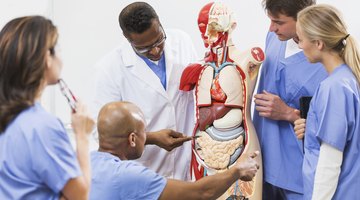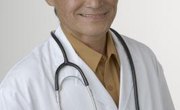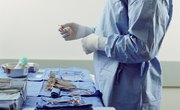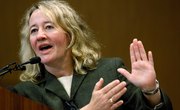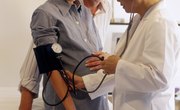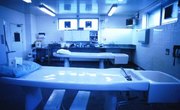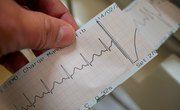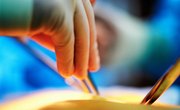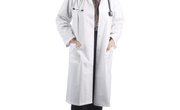Medical professionals must have a strong background in math and science but also have an understanding of humanities and English. Professionals are required to interact with patients, other professionals and write in-depth reports and notes. In undergraduate coursework it's important for students to balance their science, math and liberal arts throughout their college years. This makes coursework more attainable and provides a chance to study subjects in-depth.
Anatomy and Physiology
Nursing students, pre-medical, pre-dental and other students in medical majors take anatomy and physiology. Anatomy and physiology focuses on the systems of the body, organs and naming all parts of the skeletal and muscular system. The terms are taught using many Latin and Greek words, and hundreds of vocabulary terms are associated with the anatomy of the human body. The physiology component of the class is laboratory associated with the anatomy lecture.
Medical Humanities
Medical humanities courses introduce students to medical organizational structure, the delivery of services and financing of health care. Students also learn about current medical discoveries and technology. Medical humanities courses include the subject of medical ethics and bioethics. Medical ethics classes examine common medical ethical issues such as confidentiality, patient and doctor relationships and euthanasia. Students discuss opinions, laws and medical research associated with topics discussed.
Traditional Humanities
Humanities courses include foreign languages, philosophy and history. All of these subjects are relative to the history and current state of medicine. Medicine and healing was founded by philosophers, and many human organs and anatomical vocabulary is founded in classical language.
Inorganic and Organic Chemistry
Inorganic chemistry presents students with principles such as atomic and molecular structures of substances, periodic table elements, chemical reactivity, kinetics, equilibrium and chemical bonding. Organic chemistry is the study of physical chemistry, including reaction mechanisms, synthesizing elements and compounds and bonding. Chemistry units have lab hours associated with all lectures, and students perform hands-on experiments about classroom material.
Physics
Physics college courses are a combination of classroom lecture and lab units. Topics covered in physics courses include electricity, magnetism, atomic physics, nuclear physics, mechanics, light, conservation, momentum and motion.
Biology
Biological studies introduce students to cellular and molecular levels of organisms. Animal and plant cell forms are studied, as is heredity, evolution, genetics and metabolic information. Labs are an important part of biology classes, and may include dissections or studies of cells under microscopes. Molecular and cellular biology may be taken by those interested in more in-depth study of how and why cells and molecules are affected by disease, drugs and other things.
Math
Algebra and polynomials are reviewed, but calculus is the focus of most medical professionals' college math courses. Students learn derivatives and integration and learn to apply it to medical science. Some colleges offer a lab with their calculus classes. Other mathematics courses, such as algebra and statistics, may be recommended.
English
Medical professionals need a solid base in reading comprehension and writing skills. Students seeking to enter the medical profession are encouraged to take upper-level literature and comprehension courses.
Related Articles
References
Writer Bio
Jaime Golden attended the University of Portland and obtained a bachelor's degree in social work with a minor in English. She then attended Portland State University and received a Masters of Social Work in 2002. Golden started writing in college, with a focus on research and academic writing. She now focuses on content marketing, SEO marketing and Internet marketing.

